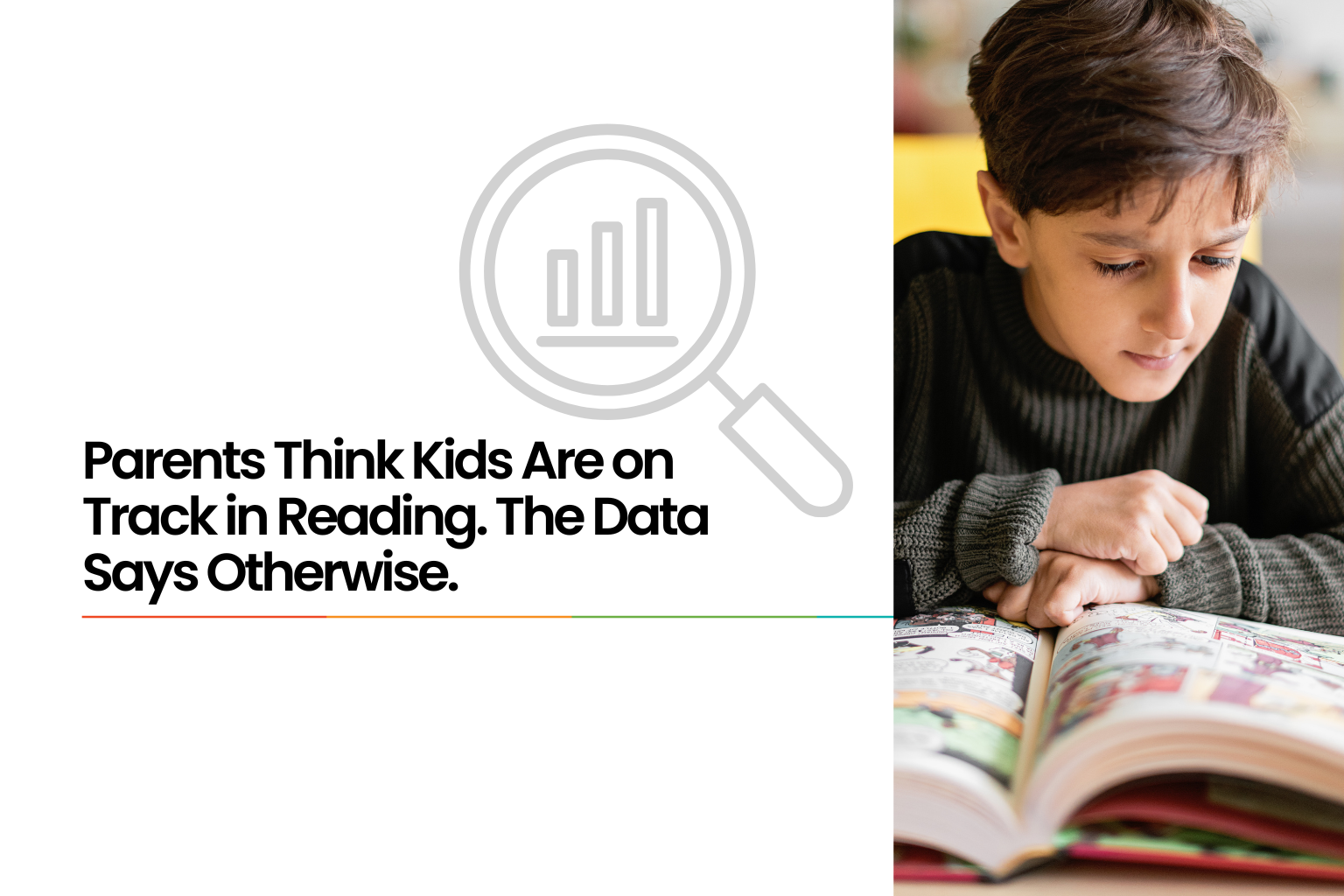Most parents like to think their kids are doing just fine in school. However, the latest data from the National Assessment of Educational Progress (NAEP), which publishes the “Nation’s Report Card,” tells a worrying story.
- The NAEP scores in four categories: “below basic,” “basic,” “proficient,” and “advanced.”
- As of the 2024 report, 69% of fourth graders are reading below proficiency levels.
- 34% of eighth graders scored “below basic,” the highest percentage in that category in 32 years of NAEP testing.
The most surprising statistic is that almost 90% of parents think their child is reading at or above grade level. Gallup and Learning Heroes conducted a survey of parents in 2023 that found that 88% of parents of K-12 students believe their child is at or above grade level in reading. This leaves us to question, “Do I have an accurate picture of how my child is doing in reading?”
Why Kids Fall Behind and What it Means for Parents
In preschool and kindergarten, reading expectations and goals can look very different from one school (or even one teacher) to another. Why?
- Schools are still transitioning to structured literacy instruction, away from balanced literacy approaches.
- As a result, some children may not consistently be taught letter recognition, phonics, or early decoding skills.
- Measurable benchmarks aren’t always shared with parents.
This makes it easy to assume your child is on track, even if they’re missing key foundational skills. By knowing what your child should be learning early on, you can help make sure they’re set up for reading success in grade 1 and beyond.
If your child is in Grades 1-2, minor setbacks in reading can snowball. By the time kids reach Grade 3, schoolwork may become difficult due to the reading required. The frustration they experience can lead to lost confidence, less interest in reading, and, when not addressed, long-term academic struggles.
As a parent, recognizing the signs of reading difficulties means you can take action before the learning gap widens.
Why the Parent Perception Gap Matters
There’s a clear disconnect between how parents feel their children are doing in reading and how they’re actually performing. This perception gap can have unintended, but serious consequences for kids:
- Kids who miss learning foundational skills in Grades K-2 often experience a snowball effect that worsens as they go into higher grades.
- Parents’ strong reliance on report cards vs. benchmark and year-end standardized tests means they see grades that reflect classwork, classroom participation, and projects, not mastery of grade-level reading skills.
- When parents believe everything is on track, they don’t ask questions or seek help. This can further delay necessary intervention for reading gaps!
The good news is that when parents are well-informed about their kids’ reading performance, they become highly involved and take action, significantly improving their child’s outcomes.
What You Can Do Right Away
You play a crucial role in understanding and advocating for your child’s reading development. There are several ways to get meaningful information and take action early:
- Stay alert if your child’s teacher brings up their reading skills
- Communicate concerns with teachers right away
- Ask for assessment results, from reading screeners to standardized tests
- Keep track of your child’s progress over time
- Seek research-backed reading support
Taking these steps as soon as you or your child’s teacher notices an issue can make a real difference in your child’s long-term academic success, confidence, and behavior.
Reading Support with Hoot Reading
Getting expert reading support for your child can help ensure they’re progressing and learning the skills they need for lifelong learning. Our 1:1 online lessons are designed to meet your child exactly where they are, with personalized and targeted instruction. Reach out to learn how our flexible, research-backed tutoring can get your child back on track.
